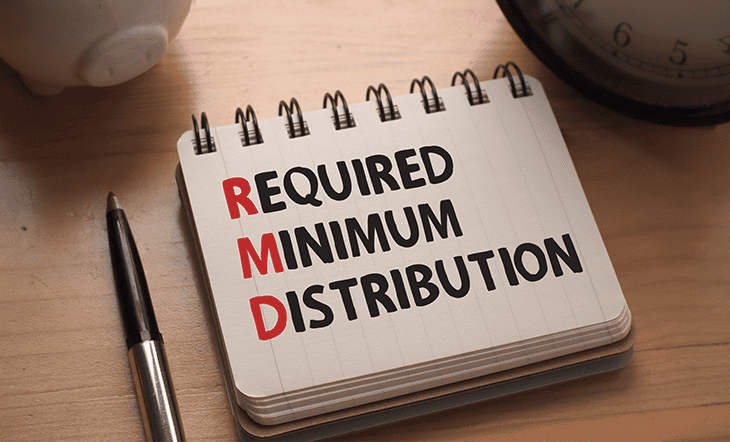Home > Retirement > Retiring at 70? Consider These 7 Tips on How to Make Money
Retiring at 70? Consider These 7 Tips on How to Make Money
Although retirement does not have to come at a specific age, it does happen at the age of 60 or a few years after for most people. The majority of offices retire their old-timers in their 60s to make way for the younger generation. This can be a great way to recycle the workforce. Moreover, most people prefer the idea of retirement in their early 60s. Your 60s can be a tricky time. If you start to show signs of aging, you may find it physically and mentally exhausting to carry on with work. This could be a good time to hang your shoes and retire. In several families, the children are well-settled or at least in college by the time the parents reach their 60s, making it a good time for them to retire and live a quiet life instead. However, some parents may have to work well into their 60s and 70s. Some people may even like the idea of postponing their retirement to 70 because of their love for their careers. A lot of people also change lanes after 60 and take up jobs that they are passionate about. Once the responsibilities are over, they are more likely to spend their time enjoying their passion and making a living out of it.
Irrespective of your reason to retire at 70 over the traditional age of 60, there are some things that you may need to think about. Retiring at 70 is more common than you think. It can also help you in several ways. However, as with all retirement plans, it is crucial to plan well to enjoy a comfortable retirement after 70. If you need help creating a retirement strategy for retiring at age 70, reach out to a professional financial advisor who can advise you on the same.
Table of Contents
Let’s find out how much you need to retire at 70 and how can you get to your goal to live a good retired life:
1. Maximize your retirement plan contributions:
By continuing to work throughout your 60s, you open various doors of financial freedom for yourself. One of these doors is through your retirement plans. The investment portfolio for a 70-year-old must include a designated retirement account. There are two ways you can benefit from your retirement accounts, like a 401(k) and an Individual Retirement Account (IRA), if you choose to retire at 70. Firstly, you will not be withdrawing your money as you would still have an income from a job to cover your expenses. Secondly, you can continue contributing to your retirement plans for another eight to ten years, depending on when you retire. The ability to contribute to your accounts in your 50s and 60s can be highly beneficial because of the catch-up contributions. As of 2022, you can contribute up to $6,500 per year towards a 401(k) and $1,000 per year towards an IRA on top of the base contribution. If you maximize your contributions for two decades, starting at the age of 50 to 70, you could contribute at least an extra $20,000 to an IRA and $130000 to a 401(k). These figures are based on the contribution limits of 2022, which are bound to change. However, you can still considerably enhance your overall retirement corpus in just 20 years. Moreover, if your employer matches your contribution in a 401(k), you would be able to benefit even more.
2. Maximize your Social Security benefits:
Typically, you can start claiming your Social Security benefits from the age of 62. However, you only get 75% of your monthly benefits at this age. Your full monthly benefits are paid to you when you cross your full retirement age. This could differ for different people depending on the year of birth. For example, those born between 1943 and 1954 reach the full retirement age at 66. The full retirement age increases in increments of two months for those born after 1954. If you delay claiming your Social Security benefits, you can get an extra 8% for every non-claim year. If you do so throughout your 60s and wait to draw your check till 70, you can increase your check by a whopping 124% of the value received at the full retirement age. This benefits not only you but also your spouse. If you must withdraw your Social Security benefits, you can plan to withdraw only one spouse’s benefits. Married couples can use one spouse’s benefits to take care of their financial needs after the age of 62 and let the other spouse’s benefits grow over time. Once the other spouse is 70, you may consider withdrawing the benefits. This way, you get to increase your paycheck without compromising on your present needs.
3. Plan your Required Minimum Distributions (RMDs):
As per the Internal Revenue Services (IRS) regulations, you are mandated to start your required minimum distributions from retirement accounts like the 401(k), IRA, etc., starting from the age of 72. If you do not withdraw these, the IRS can tax you on the funds that are not drawn. Therefore, it is vital to start your RMDs at 72. Now, there are two things to note here. If you delay your withdrawals to the age of 72, you can create a bigger retirement nest egg. However, the bigger the retirement nest egg, the higher will be your tax liability. Therefore, if you plan to retire at age 70, you need to understand your tax liabilities and make an informed decision. For instance, if you have switched lanes and are working part-time or pursuing your relatively less paying passion post the full retirement age, you may start withdrawing your RMDs before the age of 72. This can lower your tax output later while keeping you afloat in your 60s. However, if you solely focus on your contributions and not withdrawals, you may be in for a high tax rate post 72.
There is no right or wrong approach here. Your unique situation, such as if you are investing after 70 or not, as well as other expenses and goals in retirement, can help you determine the right course of action. For example, if you have been investing in a Roth IRA, your withdrawals will be tax-free post the age of 59.5. In this case, you do not have to worry about being taxed. However, if you are investing in a traditional IRA, you will need a tax plan to sort things out in your favor.
4. Continue investing after 70 to offset the effect of inflation:
No matter when you retire, your investment journey should not come to a standstill. Even though you retire and your income stops, your expenses continue, and so does inflation. If you have sufficient savings in the bank or other retirement vehicles, you would still need to account for inflation and the depleting value of your money over the years. At this stage, one investment option you may consider are low-risk bonds to deliver consistent returns and strengthen your retirement fund without adding too much volatility. Bonds are loans that you lend to other institutions. The interest on these loans is paid to you as returns. There are three types of bonds – government, municipal, and corporate. Their risk increases in the same order, making corporate bonds the riskiest and government bonds the safest. However, even at the highest risk, corporate bonds are less volatile than options like stocks.
5. Remember to sign up for Medicare at the age of 65:
Medicare is a healthcare program that you can start using once you turn 65. There are different parts of Medicare, such as Medicare Part A, Part B, Part C, and Part D. It is compulsory to enroll for Medicare even if you continue working after 65. If you fail to do so, you can be penalized. If you opt to receive your Social Security benefits at or before 65, you will be automatically enrolled for Medicare Part A and B. In this case, you will not be penalized. However, if you do not withdraw your benefits and decide to delay receiving them until your 70s, you would have to enroll in Medicare yourself to avoid the penalty. Part A is usually free anyway, so you may not have to pay the penalty on it. However, you may have to pay a 10% penalty on your monthly premium in some cases. The IRS can also charge a 10% surcharge on Part B premium payments for every year after you turn 65 and do not enroll yourself.
If you plan to retire at age 70, make sure that you enroll for Medicare during the Initial Enrollment Period (IEP). The IEP starts three months before the month you turn 65 and continues for three months after your birthday month. It also includes your birthday month, bringing the total to seven months. For instance, if your birthday falls in the month of May, your IEP will start in January and end in July.
6. Get rid of debt and avoid adding more at a later stage in life:
Delaying your retirement to your 70s does not mean you can extend your loans, too. Irrespective of when you retire, it is essential to settle your loans before you enter your 60s. There are multiple reasons for this. Firstly, not having debt at any age can be a boon to your investments. It reduces the financial burden and lets you concentrate on creating wealth rather than clearing your dues. Secondly, settling your debt before the 60s secures your retirement fund. Your health can be a source of concern post 60. If you lose the ability to work and earn before you hit 70 and have to retire even when you did not plan to, you will find it exceedingly hard to get rid of your debt on your retirement savings. This can single-handedly ruin your retirement and put pressure on you and your loved ones. Moreover, in the case of an untimely demise, the responsibility to pay your loan can also fall onto your children or spouse. This can be difficult for them and come in the way of their financial security. Therefore, it may be advised to prioritize repaying your debt early in life and refrain from taking on more at later stages. This includes credit cards, loans, and mortgages.
Having said that, you may consider a reverse mortgage on your house in retirement or even before that. A reverse mortgage lets you live in your home till you are alive and get paid for it. This can be a great way to create an alternative source of income. If you are lacking in your retirement goal, you can use this option.
To summarize
If you are wondering how much money is sufficient to retire at 70, you may not find a direct answer. There is no fixed amount for retirement at any age. However, what does matter is that you save enough that lasts you a lifetime. It can help you to evaluate your expenses, lifestyle habits, goals, and more to arrive at a figure that is ideal for you. The tips given above can help you if you wish to retire at 70. Additionally, if you need more advice in picking the best investment for people over 70, you can also hire a professional financial advisor who can create a customized retirement investment strategy for you that specifically caters to 70-year-old retirees. Use Paladin Registry’s free advisor match tool and get matched with 1-3 qualified advisors who may be able to help you with your unique financial goals and requirements.
To learn more about the most suitable tax-saving strategies for your specific financial requirements, visit Dash Investments or email me directly at dash@dashinvestments.com.
About Dash Investments
Dash Investments is privately owned by Jonathan Dash and is an independent investment advisory firm, managing private client accounts for individuals and families across America. As a Registered Investment Advisor (RIA) firm with the SEC, they are fiduciaries who put clients’ interests ahead of everything else.
Dash Investments offers a full range of investment advisory and financial services, which are tailored to each client’s unique needs providing institutional-caliber money management services that are based upon a solid, proven research approach. Additionally, each client receives comprehensive financial planning to ensure they are moving toward their financial goals. CEO & Chief Investment Officer Jonathan Dash has been covered in major business publications such as Barron’s, The Wall Street Journal, and The New York Times as a leader in the investment industry with a track record of creating value for his firm’s clients.
Other posts from Jonathan Dash
Here’s Why Every Tax Season is a Good Time to Revisit Your Financial Investments
The tax season is the perfect time to take a closer look at your financial investments. The 2025...
3 Key Financial Habits That Set Wealthy Retirees Apart
The wealthy may seem to have it all figured out, but their success is the result of years...
Things You Should Know About RMDs if You Are Turning 73
Retirement accounts like the 401(k) and the Individual Retirement Account (IRA) are broadly classified as traditional, and Roth based on their taxability....




